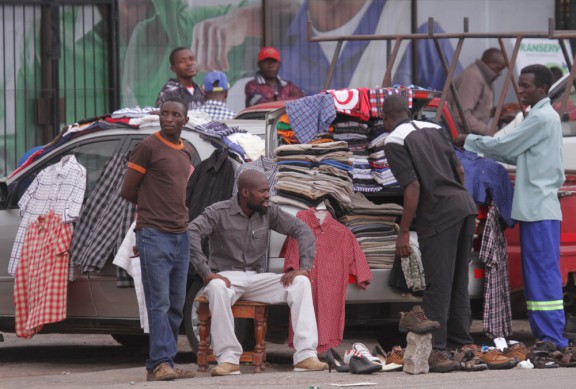
IT is a universally well-known fact that African men take immense pride in their masculinity. They take the head-of-household role very seriously and there is nothing they find more embarrassing and emasculating than the inability to fend for their families.
BY CHIPO MASARA
Today, millions of Zimbabwean men find themselves in an inglorious predicament. The horrifying state that the country’s economy is in has meant loss of jobs for many of them, rendering them too broke to play any meaningful role in the upkeep of their families.

A year ago, *Alfonso worked in a local bank as a bank teller, quite a respectable job by Zimbabwean standards. But two months ago — following the July 17 Supreme Court ruling that placed workers at the mercy of their employers — Alfonso together with thousands of other workers; he received a letter of termination of employment without any benefits, rendering him jobless and for the first time in a long time, quite impecunious.
For the eight years that Alfonso was employed by the bank, he was the sole breadwinner for his stay-at-home wife *Stella, their two young children, as well as some extended family members. In fact, some years back his wife had hinted at furthering her studies and looking for a job, but he quickly shot the idea down, insisting he was well able to take care of her and their growing family. He believed his wife’s place was at home, taking care of the children and their home. The arrangement worked out perfectly, until Alfonso lost his job.
Alfonso’s loss of employment has greatly changed the dynamics in his household. The family had to move from the comfortable eight-roomed Hatfield house that they had rented for three years into a four-roomed cottage. But acquiring rent for the cottage is, according to Alfonso, also proving to be a challenge.
The move has also meant their son, who is in Grade Two, has had to change schools.
- Chamisa under fire over US$120K donation
- Mavhunga puts DeMbare into Chibuku quarterfinals
- Pension funds bet on Cabora Bassa oilfields
- Councils defy govt fire tender directive
Keep Reading
“I wish I had built a house on my stand when I had the chance. I wasted so much time thinking I would have that job forever,” says Alfonso, showing deep regret.
“I have been trying to break into the informal market to see if I can start something, but it’s not easy. It’s a dog-eat-dog world out there,” he says.
But maybe the worst adjustment for Alfonso has been having to eventually allow his wife to take a job as a till operator at a supermarket — a job that her friend from church arranged for her. Alfonso admits he regrets that he didn’t allow her the chance to further her education.
“What can I do? I cannot possibly argue against her working to help take care of our family when I am not able to bring anything to the table at the moment. Let’s face it; women have better chances of getting jobs than men do at the moment.”
The change of roles has meant that — since they cannot at the moment afford a child-minder — Alfonso has to stay at home with their three-year-old daughter while Stellar goes to work and only comes back home in the evenings.
Asked how he felt about the arrangement, Alfonso had this to say: “It’s not easy. It was very difficult at first. It still is, but it’s getting better. I guess I have come to embrace it as a chance to get to know my little daughter that I rarely spent time with when I was working.”
Alfonso is not the only Zimbabwean man that finds himself in this predicament. Due to the continuing job losses in the country as companies continue to close down while some downscale, many men in the country are continually losing their breadwinning role. As a result, most wives and mothers have had to step up and help keep their families from sinking in a sea of abject poverty.
Unlike their male counterparts who tend to be picky, most Zimbabwean women have no qualms with engaging in even lowly type of ventures, just as long as they offer them returns — which explains why the majority of vendors that brace the vagaries of the weather in the city centres to sell anything they can get their hands on, are women.
*Not real name











